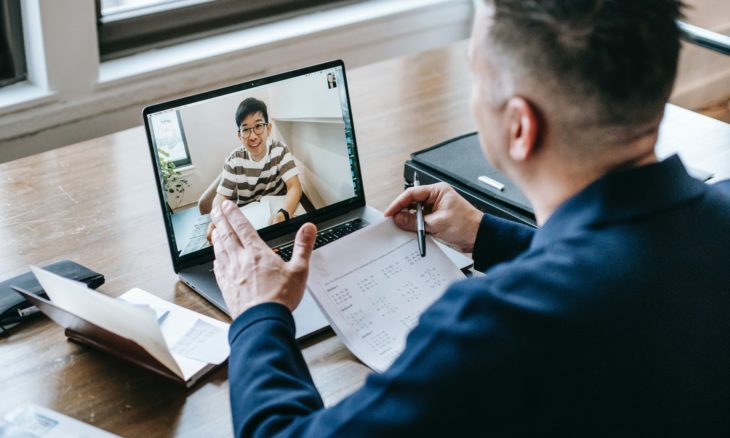“Focus on the ‘platinum rule,’ treat others as they want to be treated.” “Seek to understand before being understood.” “Separate the signal from the noise.” “Focus on what you can control and let go of the rest.” “Manage your energy and your time will flow from that.”
These were just some of the many pearls of wisdom that my mentors, aka my personal board of directors, graciously and generously gifted me throughout my career. Their insights, counsel and dedicated time to help me holistically structure my professional arc and narrative continue to resonate. Specifically, their ability to challenge my thinking, encourage me to take strategic risks and push my development to new (and often uncomfortable) spaces helped me immensely. My gratitude runs deep.
This week’s articles explore a variety of perspectives (and research) as to what constitutes effective mentoring, optimal mentor attributes, how best to show up in a mentoring relationship and why it is so important to engage and cultivate mentors/personal board of directors to guide your career. And, there is other reading and listening not related to mentoring to keep things interesting, especially both podcasts and Rich Litvin’s superpowers blog post.
As always, happy reading and listening!
Articles
This Is What The Best Mentors Do. “Having a mentor is the greatest gift someone can receive. It is also the most significant treasure someone can offer…Those who have mentors out earn and outperform those who try going about it on their own. What is this great superpower which mentors hold?”
What’s the Secret Ingredient to Great Mentorship? “But new research…shows that mentorship is indeed beneficial—especially when mentors pass down unwritten, intuitive forms of knowledge…Mentors who pass on tacit knowledge gained through their work experience rather than codified skills produce mentees who are significantly more likely to become superstars of their fields. What’s more, “mini-mes” don’t necessarily thrive. Protégés are most successful when they work on different topics than their mentors.”
Female Founders’ Advice for Finding the Perfect Mentor. “Before you ask for help, figure out exactly what you’re asking for.”
How to Build a Great Relationship with a Mentor. “While 76% of working professionals believe that a mentor is important to growth, more than 54% do not have such a relationship. If you’re one of these people, there are a few things you can do to find a mentor and build a strong relationship: define your goals and specific needs; write a “job description” for your ideal mentor; search for mentors through your second-degree network; make the ask (and keep it simple); have a first meeting; create a mentorship agreement; and follow up to say thank you over the long term.”
What’s the Right Way to Find a Mentor? “Mentorship can be life changing. Staying in the driver’s seat and being proactive about your relationship with your mentor is key to its success. These simple principles will help develop strong mentoring relationships, no matter where you are in your career.”
Building a “Personal Board of Directors” Can Transform Your Career—Here’s How to Do It. “A personal board of directors is like an unofficial group of guides or a team of unpaid career coaches. Your board is a handful of people you can turn to with questions or concerns…Just as organizations benefit from the knowledge and experiences of a variety of advisors, so do individuals navigating how to get in and stay in a rewarding career.”
How To Find The Perfect Mentor To Boost Your Career. “If you are looking for the perfect mentor, stop. He or she does not exist. When I ask people if they have a mentor, too often, they tell me they have not found the right person; a case of analysis paralysis…But there is good news. You can find that by encasing yourself among a group of people, of whom each can offer something unique.”
Podcasts
Reboot Podcast. Signal and Noise: Jeremy Bloom. “…Jerry and Jeremy discuss the striking parallels between the pressures elite athletes encounter and the everyday stressors entrepreneurs endure. The duo contemplates the inertia that arises from failure and considers the perils of allowing our self-worth to be defined by the attainment of our goals. Jeremy shares why the hardest aspect of leadership is managing your own psychology and why honing the ability to differentiate signal from noise is paramount for today’s leaders.”
WorkLife with Adam Grant. Think Again: JJ Abrams Takes Adam’s Job. “JJ Abrams joins as the interviewer for an exclusive first look at Adam’s [new] book: “Think Again: The Power of Knowing What You Don’t Know.” Together, they illuminate strategies for maintaining humility, curiosity, and mental flexibility in a world that rewards confidence, conviction, and foolish consistency.”
Blog Posts
Rich Litvin: 11 Undervalued Superpowers. [A great practical list, and one that would benefit from the addition of seek to understand before being understood, aka the superpower of listening.]
Seth Godin: A Different Urgency. “In any given moment, an urgency that feels like an emergency gives us the permission to abandon our systems and simply dive in and fix it, as only we can. And this permission is precisely why we get stuck, precisely why the next urgency is likely to appear tomorrow.”
Arts, Music & Culture Corner
A Quiet Revolution. “Indigo Girls’ Amy Ray and Emily Saliers on their life in music, activism and friendship.”
A Ruthless Ranking Of The 25 Best Muppets, According To [NPR] Listeners.
Reflections
“Advice is like snow; the softer it falls, the longer it dwells upon, and the deeper it sinks into the mind.” — Samuel Taylor Coleridge
“The delicate balance of mentoring someone is not creating them in your own image, but giving them the opportunity to create themselves.”— Steven Spielberg








I had to read it twice. Very nice.